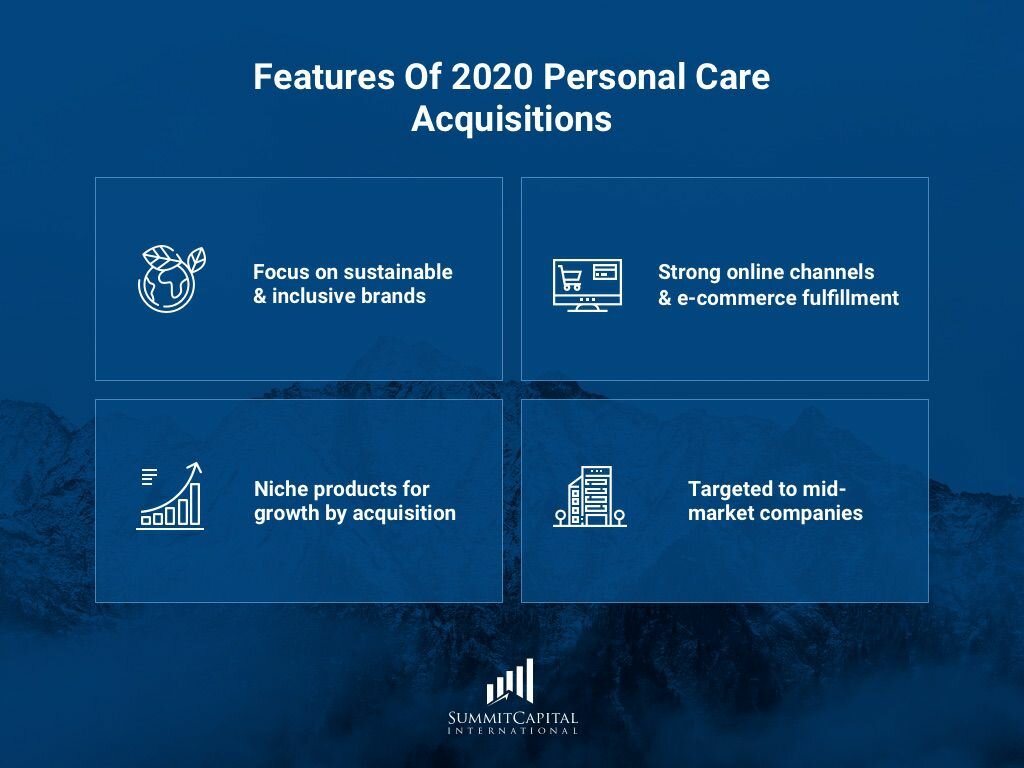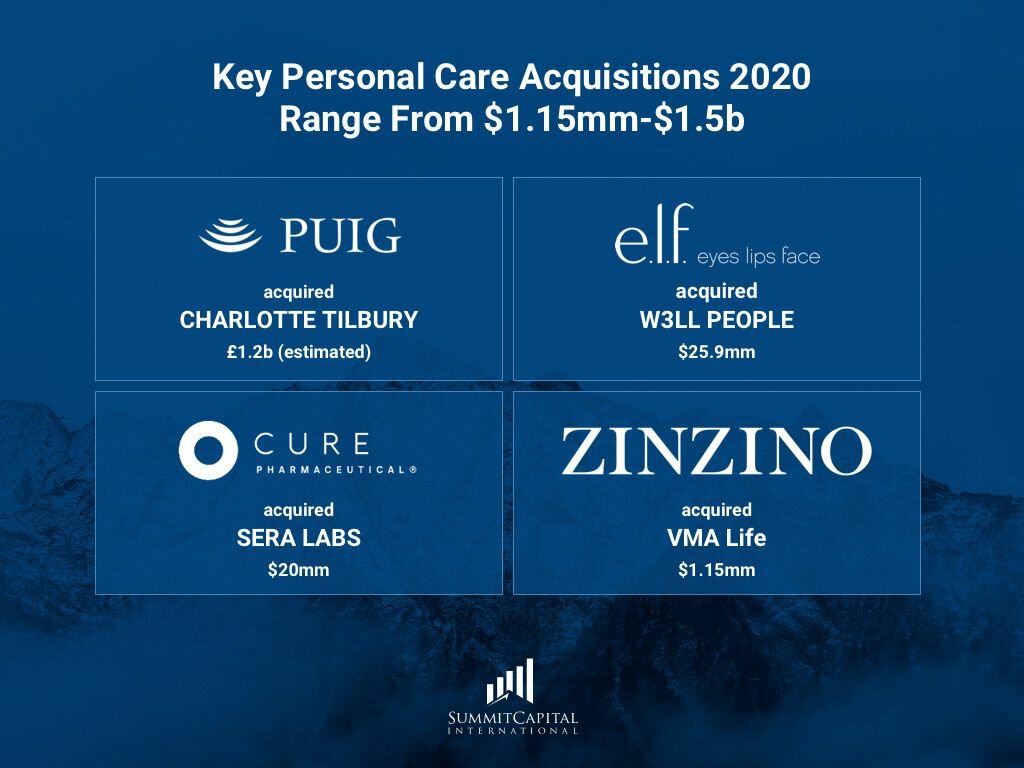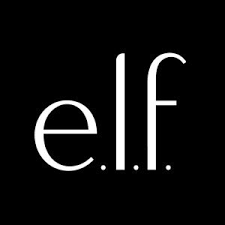Key 2020 Acquisitions In The Personal Care Industry
For the world’s biggest personal care companies, nothing is more in style right now than buying up relatively young health and beauty care companies with niche products and healthy annual sales.
Large legacy brands, like Procter & Gamble and Colgate Palmolive, are acquiring women-focused and sustainable brands to appeal to a younger audience. Mid-market companies are also acquiring brands that complement or expand their product line or help to improve efficiencies.
We anticipate COVID-19 will encourage continued mergers and acquisitions (M&A) as both established and mid-market companies seek to grow via acquisition and target new audiences. Although it’s possible M&A activity might focus on smaller deals due to uncertainty, this could provide a key opportunity to mid-market companies looking to grow through acquisition.
M&A Personal Care Movements In 2020
In the first half of 2020, M&A movements in the personal care industry seem to focus on companies strategically growing through acquisitions of niche companies. Although fewer in number than what we saw in 2019, acquisition activity includes companies looking to diversify product portfolios or geographic reach.
Investors continue to look for more sustainable and inclusive brands, including women-owned and minority-owned businesses. There is a focus on clean beauty and product sourcing as the concentration on color cosmetics starts to wane. Private equity firms are also turning to personal care and beauty brands to diversify investment portfolios.
Companies are also looking to acquire brands with a strong e-commerce position and contemporary direct-to-consumer marketing. This includes brands that attract a youthful customer audience through augmented reality as well as social media and influencer marketing.
The result is a more competitive acquisition landscape. Acquisition targets are abundant, but due diligence is more important than ever. Strategic growth in a COVID-19 world means surviving in the short term while looking for long-term growth opportunities. This means understanding the shifting sands of changed consumer behaviors - from product choices to selecting a sales channels.
Many acquirers are looking for deals less than $100 million in valuation in 2020, with most preferring new or alternative brands versus established players. This will favor small and mid-sized targets and could provide growth opportunities.

Trends In The Personal Care Industry
As 2020 continues to evolve, big beauty brands are looking to trends led by the independent and more niche personal care brands. This includes trends of digitalization, personalization, wellness, and sustainability. There’s also a shift in the demographics of the market.
Digitalization And Personalization
TREND: Beauty Goes Digital
COVID-19 is bringing out the consumer’s desire to focus on mental and emotional well being while relying increasingly on e-commerce platforms and digital marketing. Brands that can reach this target audience in more personalized ways, even over digital mediums, are setting themselves up for success.
The effect of COVID-19 can be seen in the beauty and personal care market most noticeably in the digital disruption of the industry. Not only are e-commerce channels exploding due to retail store closures, but brands continue to look for unique ways to reach deeper into the market. This includes live-streaming events, shoppable social media, mobile messaging marketing, and interactive beauty apps.
There is an increased focus on mental and emotional well being, and consumers are looking to technology to set and track various wellness goals. People are also looking for ways to explore salon or spa-like treatments at home.
Wellness And Sustainability
One trend that will not go away post-COVID-19 is a focus on ethical and sustainable products. Now more than ever, consumers are focused on sourcing and ingredients as they make a determination on what they are introducing into their households.
There is a trend towards both clean and conscious beauty. Digital-savvy consumers are looking for ways to hold brands accountable and they expect something more than just profit-driven big brands. Brands with a social, economic, or political voice that stand for something are appealing to a growing segment of the market.
Demographic Shift
TREND: More Inclusive Beauty Care Market
Brands that cater to older women, people of color, and who target men’s grooming needs are stand-outs. It’s also a trend in beauty care acquisitions thus far in 2020, where large beauty and personal care brands are acquiring mid-market companies that focus on these emerging demographics.
The trend towards clean and conscious beauty brands also means a focus on the special needs of particular segments of the market. This means brands that cater to older women, people of color, and the growing trend in men’s grooming products. There is no longer a one-size-fits-all approach to marketing in the personal care industry. Brands that cater to these unique segments are appealing to companies that are looking to find a market leader in a particular subset of the industry.
Expect also to see an increased focus on Asia, the highest-value region for skincare products. Asia represents over 50% of global sales. This includes emerging markets such as Indonesia, but also more developed markets including Japan and Hong Kong.
Key Personal Care & Beauty Acquisitions In 2020


Consumer Products And Direct-To-Consumer Sales Channels
GROWTH TREND: Consumer Products Acquisitions
The 2020 trend is for larger personal care companies to strategically target young, energetic start-up companies to solidify their footprint in growing product segments. This includes targeting more sustainable and more inclusive brands.
This is growth by acquisition in the most traditional sense, with companies like Procter & Gamble and Colgate Palmolive snapping up young, energetic start-up companies to expand their product portfolios.
These acquisitions also include direct-to-consumer and e-commerce platforms, which might not have a long-term history in the personal care industry. But, there are opportunities for mid-market brands that are looking to grow strategically by finding companies that complement or expand their current product lines.
Procter & Gamble Acquired Billie
In January 2020, Procter & Gamble (P&G) acquired Billie, Inc. to reach further into the millennial and Gen Z female market.
Procter & Gamble is one of the largest retail consumer companies in the world, with well-known personal care brands like Always, Crest, Gillette, Olay, Oral-B, and Pantene, among others. In the year ended 2019, its personal grooming segment, led by the Gillette brand, lagged behind others in the company. It was the only department with unit sales declines in 2019. Last year, P&G wrote down Gillette’s assets by $8 billion, blaming a decline in men shaving overall.
Billie, Inc. is a fast-growing female body care company, promoting positive body image while providing premium shaving supplies and body care products without the markup. Marketing focuses on the premium pricing placed on women’s products just because they are for women (the “Pink Tax”).
Billie’s products include 5-blade razors encased in charcoal shave soap with a magnetic handle and holder. They also offer shaving cream, body wash, and body lotion. Billie donates 1% of all revenue to women's causes around the world.
Although deal terms were not disclosed, Billie raised $35mm of venture funding prior to the January 2020 acquisition. In April 2018, Austin-based Silverton Partners led Billie’s $6mm seed round, which also included participation from Serena Ventures (tennis pro Serena Williams’ investment vehicle), Lakehouse Ventures, Female Founders Fund, and Align Ventures. Billie later went on to raise another $4mm in an extension of that seed round, according to Silverton. In 2019, Billie announced a $25mm Series A raise led by Goldman Sachs.
The Billie acquisition is the latest from P&G, one of the top acquiring personal care and consumer products companies. In 2018, P&G acquired Walker & Company, a health and beauty company focusing on people of color. In 2019 they acquired L., a women-owned period care company. Billie is another strategic growth acquisition to improve P&Gs footprint into customized products for women and a way to counter the overall decline in sales in the Gillette brand.
Colgate Palmolive Acquired Hello Products
In January 2020, Colgate Palmolive acquired Hello Products to increase its footprint in the sustainable and environmentally-friendly oral care product segment.
Colgate Palmolive is a leading global consumer products company, focused on the Oral Care, Personal Care, Home Care, and Pet Nutrition verticals. The company is a household name worldwide with more than 34,000 employees and products sold in over 200 countries and territories.
The Company is also recognized for its leadership and innovation in promoting environmental sustainability and community wellbeing. This includes its achievements in saving water, reducing waste, promoting recyclability, and improving the oral health of children through its Bright Smiles, Bright Futures program. The program has reached more than one billion children since 1991.
Colgate Palmolive’s acquisition of Hello Products is the latest in a string of strategic acquisitions over the last decade-plus. Other acquisitions included Filorga Cosmetiques in July 2019 for a reported $1.5b and PCA Skin in 2017 for an undisclosed amount.
Hello Products is one of the fastest-growing, premium oral care brands in the US. It's aimed at young consumers looking for a more sustainable alternative to traditional oral care products. One of their key products is a toothpaste tablet meant to be a plastic-free alternative to traditional toothpaste tubes. The full product line includes toothpaste, mouth rinse, toothbrushes, and deodorants. It is sold at retailers throughout the US and through their e-commerce site.
Hello Products is a key, strategic acquisition for Colgate Palmolive, as they look to strengthen their market position in sustainable and environmentally friendly oral care products. They acquired Tom’s of Maine for $100mm in 2006, an early entry into more sustainable personal care products.
e.l.f. Cosmetics Acquired W3LL PEOPLE
In March 2020, e.l.f. Cosmetics acquired W3LL People for $25.9mm to grow its clean beauty product line.
Founded in 2004, e.l.f. (for eye. lip. face.) started with about a dozen products and a predominantly online presence. It quickly became an online beauty authority. Ultimately securing permanent in-line displays at many major retailers across the US. The brand features prominently at Ulta Beauty, Walmart, and Target and covers a wide demographic of women, from teens to baby boomers. They closed the fiscal year 2020 with net sales of $283 million, up 11% from the prior year. The company has a market value of over $700 million.
The acquisition of W3LL PEOPLE expanded its ethical cosmetics product line. W3LL PEOPLE is a pioneer in offering accessible clean beauty products that work. The W3LL PEOPLE portfolio spans the eyes, lips, face, kits, tools, and skincare categories.
e.l.f. acquired W3LL PEOPLE for $25.9mm in an all-cash deal. It was a strategic growth acquisition as e.l.f. continues to meet consumer demands for clean and sustainable beauty products. Although e.l.f. operates as a holding company, its core business includes direct-to-consumer sales under the e.l.f. brand and now the W3LL PEOPLE brand. This was the first reported acquisition for e.l.f.


e.l.f. Cosmetics Strategic Growth
The acquisition of W3LL PEOPLE is just one of several steps e.l.f. Cosmetics took over the last decade to solidify its position in the beauty care industry. Read this e.l.f. Cosmetics Case Study to better understand their recent strategic growth strategy.
Grove Collaborative Acquired Sundaily
In June 2020, Grove Collaborative acquired Sundaily, a manufacturer of gummy supplements to enhance their natural home and personal care product line.
Grove Collaborative is a California-based direct-to-consumer e-commerce platform with a focus on natural home and personal care products. Stocking well-known brands such as Mrs. Meyers, Method, and Seventh Generation, they also produce their own private label products. Consumers receive a monthly shipment of all of the natural home and personal care products needed. They research and certify every product stocked so that consumers don’t have to and are a Certified B Corporation.
Sundaily manufactures daily gummy supplements for healthy skin. With a promise to fight daily stressors, from lack of sleep to UV light and pollution, Sundaily hopes to reverse the clock and reduce visible signs of aging.
At Grove, their long-term vision is that consumer products will become a positive force for human and environmental health. Sundaily helps them fulfill this vision by bringing effective, innovative, products to their growing customer base. The companies share a commitment to positive social change, including increased ingredient transparency and long-term sustainability.
It is unclear how the integration will occur. This acquisition follows Grove Collaborative’s 2019 acquisition of Darby Smart, a DIY and home decor video commerce platform.
Zinzino Acquired VMA Life
In April 2020, Zinzino acquired VMA Life to expand into the Asian market.
Zinzino is a global direct sales company that markets and sells test-based nutrition, skincare, and lifestyle products. It’s a public company and its shares are listed on Nasdaq First North Growth Market.
VMA Life is also a direct sales health and beauty company headquartered in Singapore with business operations in Malaysia, Thailand, Taiwan, Hong Kong, China, and Singapore. They have an annual turnover of approximately $2mm.
The April 2020 acquisition aimed to embed Zinzino in the Asian marketplace, making it a geographic strategic growth acquisition. The goal is to expand into India and Australia as well. The letter of intent quoted a fixed purchase price of $400,000 in cash and newly issued Zinzino shares, in addition to a percentage of sales through 2023. It’s estimated the total purchase price will be $1.15mm.
Isagenix International Acquired Zija
In January 2020, Isagenix acquired Zija International to geographically expand the footprint of its multi-level marketing company.
Established in 2002, Isagenix is a global health and wellness company focusing on nutrition and weight management. They sell over 100 products in 14 markets through a network of independent distributors.
Zija International is a Utah-based direct sales, multi-level marketing company focused on plant-based products. Zija operates in more than 50 countries, providing Isagenix an opportunity for exponential geographic growth. The Zija direct sales distributors will become part of the Isagenix family.
Holding Companies
GROWTH TREND: Holding Company Expansion
Following growth strategies similar to those in the direct-to-consumer industry segment, several holding companies are continuing to expand operations through strategic acquisitions. These acquisitions are generally to expand into new geographic markets or product segments.
Several key acquisitions during the first half of 2020 occurred on behalf of holding companies or brand incubators. These holding companies continue to expand their portfolio of products, but normally work through alternative sales channels or distributor relationships rather than direct-to-consumer. In these cases, often the founder of the company continues to be involved, but the company receives an injection of funding and access to a greater geographic market.
Puig Acquired Charlotte Tilbury Beauty
In January 2020, Spanish company Puig acquired Charlotte Tilbury Beauty to expand into the beauty and cosmetics market.
Puig is a third-generation, family-owned fashion and fragrance business based in Barcelona. The holding company includes fashion and beauty brands under labels such as Shakira, Antonio Banderas, and Jean-Paul Gaultier. The company reported €226mm of pre-tax profit on €2b of sales for 2019. It aims to generate €3b of annual net revenues by 2025.
As part of its growth by acquisition strategy, Puig purchased Charlotte Tilbury Beauty Ltd. Charlotte Tilbury launched her skincare and beauty brand in 2012 by securing a deal with Selfridges in London. From there, the brand grew to be stocked in major department stores in the UK, US, and globally. The company secured counter space at Harrods, Sephora, and Nordstrom, among others. Based in Central London, Charlotte Tilbury launched its flagship London store at Covent Garden. In 2019, the brand saw £229mm of net sales.
Puig’s acquisition of a majority stake in Charlotte Tilbury added an established and rapidly-growing luxury makeup and skincare brand to Puig’s portfolio of fragrance and fashion brands. This is a key growth acquisition that will allow Puig to take a three-pronged approach to retail: fragrance, fashion, and beauty. The acquisition was mutually beneficial to Charlotte Tilbury as well, allowing the makeup brand to access Puig’s global operational footprint.
The final deal terms are unclear but it was reported that Charlotte Tilbury Beauty Ltd. sought a £1b deal for the brand. WWD reported the purchase price at £1.2b or five-times revenue. Charlotte Tilbury’s EBITDA were said to be in the high £20mm range. Puig’s acquisition of Charlotte Tilbury followed its 2018 acquisition of Belgian fashion brand Dries Van Noten.
Kendo Brands Acquired KVD Vegan Beauty
In January 2020, holding company Kendo acquired KVD Vegan Beauty, allowing the founder, Kat Von D, to fully exit her company.
In a prime example of a founder exiting, Kat Von D sold her interest in her namesake beauty brand to focus on her music career. Kendo Brands is an innovative beauty brand incubator and holding company. Kendo’s brand line includes Marc Jacobs and Lip Lab, among others.
KVD Vegan Beauty is a vegan and cruelty-free beauty and makeup brand founded by Kat Von D, a Mexican-American entrepreneur, tattoo artist, model, and entertainer. In a little over a decade, the Kat Von D Beauty line grew to include 250 products sold in 36 countries through relationships with Sephora, JCPenney, and Debenhams in the UK and Ireland. They also have a direct-to-consumer e-commerce platform. Kat Von D announced in January 2020 her intention to focus on other projects, including her vegan shoe line and music career.
There was an existing relationship between Kendo and Kat Von D, but the artist sold her ownership interest in the beauty line. The beauty line was renamed to KVD Vegan Beauty on the exit.
Blackstone Tactical Opportunities Acquired ZO Skin Care
In October 2020, Blackstone acquired a majority stake in ZO Skin Care to expand its healthcare-related assets.
ZO Skin Care produces a physician-dispensed line of skincare products under the ZO Skin Health brand. In 2019, ZO Skin Care earned roughly $140 million in sales. Its product line includes anti-aging, acne, and brightening products backed by science. Because the products are physician-dispensed, they are not found on Amazon or at traditional beauty retailers. The company's seen a large increase in e-commerce sales despite the general COVID-related slowdown.
Blackstone is a private equity firm with over $500 billion in managed assets. It intends to continue the ZO Skin Care operations and product line. Neither company released specific deal terms publicly. ZO Skin Care plans to use the backing of Blackstone to continue its organic and strategic growth in the long term.
CURE Pharmaceutical Acquired Sera Labs
In July 2020, CURE Pharmaceuticals acquired Sera Labs to grow its portfolio of CBD-related products.
CURE Pharmaceutical is a drug delivery and development company working in a variety of verticals within the industry. They partner with pharmaceutical and wellness companies for white-label production.
Sera Labs is a leader in the CBD health, wellness, and beauty sectors. They have over 20 products under various brand names including SeraRelief, SeraTopical, and Gordon’s Herbals. The products are sold in national drug and grocery chain stores in the US as well as through multi-level marketers and direct-to-consumer e-commerce platforms.
The acquisition of Sera Labs for a reported $20m helped CURE Pharmaceutical to add to its growing portfolio of CBD-related products. The goal is to apply CURE’s innovative dosing strategies to Sera Labs CBD products.
The stock acquisition was part of an MOU that included key earn-out considerations for a potential of an additional $20mm within two years of the acquisition. Cure Pharmaceutical also acquired Chemistry Holdings in 2019.
GROWTH TREND: CBD Products
There is no denying that the CBD trend will continue, in particular in the US market. During the first half of 2020, we saw three key personal care acquisitions within the CBD industry. More company acquisitions are likely.
Fosun International Acquired WEI Beauty
In March 2020, a Fosun subsidiary, Fosun Jinmei Cosmetics Co., acquired Wei Holding to expand its reach into the beauty industry while allowing Wei to grow its sales in China.
Fosun International Limited is a Chinese conglomerate and investment company. Founded in 1992, the company is headquartered in Shanghai and incorporated in Hong Kong in 2004. Fosun is a holding company for various consumer businesses providing goods and services focused on health, happiness, and wealth.
Pennsylvania-based Wei Beauty produces skincare products based on traditional Chinese Medicine. They sell in 11 countries, including the US and China. Fosun’s goal is to improve its reach in the beauty and cosmetics industry as well as grow Wei Beauty’s Chinese sales. Fosun acquired a 68% controlling industry in the company.
Manufacturers And Wholesalers
Strategic Growth Strategies
Often when seeking to grow via acquisition, investors and companies look to retail brands with a strong market presence in a growing niche. Don't overlook the chance to grow by investing in manufacturing and wholesale verticals, which can be an opportunity to improve supply chain efficiencies.
A couple of the 2020 personal care acquisitions are unique in that manufacturing and production companies purchased retail companies. In some cases, it’s unclear what long-term integration will mean for these companies.
Bayou City Hemp Company Acquired LeafLife Wellness
At least three key personal care acquisitions in 2020 are in the fast-growing CBD industry.
In July 2020, Bayou City Hemp acquired LeafLife Wellness to add a retail and direct-to-consumer CBD product line to its manufacturing operations.
The Bayou City Hemp Company focuses on processing and extraction to create CBD and other cannabinoid oils, distillates, and isolates. The Texas-based company partners with companies looking to manufacture high quality, clean CBD for end users across many industries.
LeafLife Wellness is a Dallas-based CBD retail company engaged in the formulation, manufacturing, and distribution of hemp-derived CBD luxurious skin care, cosmetics and wellness products. LeafLife Wellness carries high-quality skin care, cosmetics and wellness products infused with CBD.
The addition of a retail, direct-to-consumer CBD company is a big step for Bayou City, particularly one that holds the same philosophy with respect to high-quality clean CBD. It’s expected to be a strategic fit within the Bayou City Hemp organization. It’s the first reported strategic acquisition by Bayou City Hemp.
Pressure BioSciences, Inc. Acquired SkinScience Labs Through CannaWorx
In April 2020, Pressure BioSciences, Inc. acquired CannaWorx, which in turn acquired SkinScience to take its CBD technology and know-how to expand into the skincare and anti-aging product segment.
Another acquisition within the CBD industry, CannaWorx provides support functions through its cannabis career institute. They offer facilities, equipment, consulting, product development, research and development, financing, personnel, and management within the cannabis and hemp industries.
SkinScience Labs, Inc. is the parent company of the Dr. Denese skincare and anti-aging product lines. The Dr. Denese SkinScience brand has reached top-performing status on QVC for a skincare line, selling over 25 million units.
Pressure BioSciences’s proprietary technology for preparing high-quality nanoemulsions will be used to drive product quality and effectiveness of the Dr. Denese products. The integration of the three companies is uncertain as Dr. Denese currently doesn’t offer CBD products.
Personal Care Acquisitions In The Second Half Of 2020
Thus far, 2020 has been a little slower with respect to the number of acquisitions in the beauty and personal care industry. According to Mergermarket’s 2020 half-year report, competition for assets in the consumer industry should sustain acquisition activity in the second half of the year. This is due, in part, to declining valuations and opportunities for investors to pick up distressed asset sales.
Overall, these strategic growth acquisitions are focused on emerging brands, fast-developing segments, and in the beauty and personal care industry a focus on wellness, sustainability, and inclusiveness.
